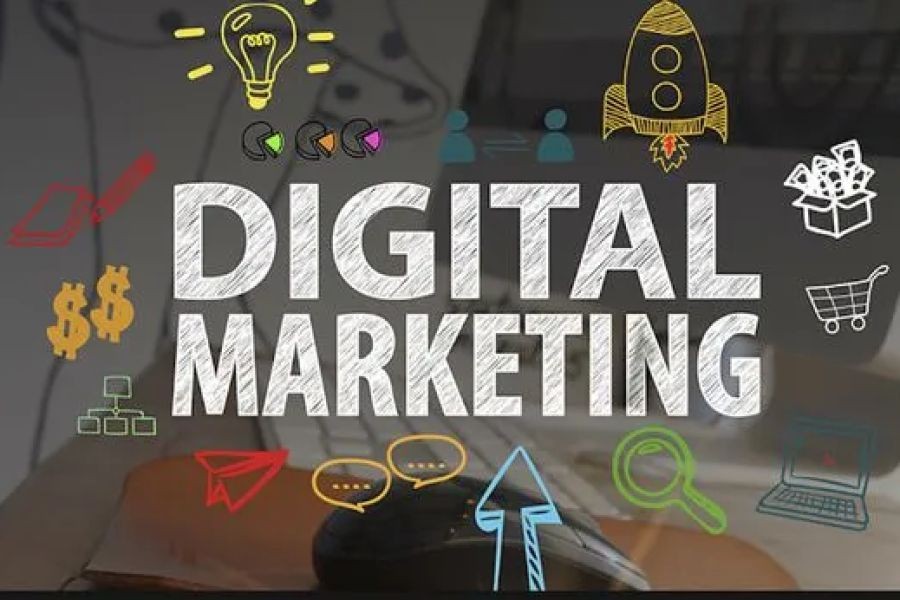In the picturesque landscapes of New Zealand, a digital revolution has quietly unfolded. This transformation, led by the rapid adoption of digital marketing strategies, has reshaped how Kiwi businesses engage with their consumers. As the world grows increasingly digital, understanding the evolution of digital marketing in New Zealand is crucial for strategists aiming to harness its power effectively.
Digital marketing in New Zealand has evolved significantly from its nascent stages in the early 2000s to the present day. This article explores this journey, highlighting key milestones, challenges, and opportunities that have shaped its growth. From the days of basic email campaigns to the sophisticated AI-driven strategies of today, the story of digital marketing in New Zealand is as dynamic as it is transformative.
The Early Days: Email Marketing and Basic Websites
The dawn of digital marketing in New Zealand can be traced back to the late 1990s and early 2000s when businesses began exploring email marketing as a tool to reach customers. During this period, most businesses operated basic websites primarily for informational purposes. The focus was on establishing an online presence rather than engaging consumers.
However, with the increasing accessibility of the internet, businesses soon realized the potential of digital platforms for targeted marketing. According to a 2003 report from Stats NZ, internet usage in New Zealand grew from 22% in 1999 to over 60% by 2003, marking a significant shift towards digital engagement. This laid the foundation for more sophisticated digital marketing strategies.
The Rise of Social Media and Search Engine Optimization (SEO)
As the internet evolved, so did the tools for reaching consumers. The mid-2000s saw the advent of social media platforms like Facebook and Twitter, which rapidly gained popularity among New Zealanders. These platforms offered businesses new avenues to connect with their audience, allowing for more personalized and engaging marketing strategies.
Search Engine Optimization (SEO) also emerged as a critical component of digital marketing. Businesses began optimizing their online content to rank higher in search engine results, thus increasing their visibility and attracting more visitors. By 2010, SEO had become a standard practice for businesses in New Zealand, as reflected in a report by NZTech, which highlighted that companies employing SEO strategies saw a 30% increase in organic traffic.
Case Study: Mighty Ape - Harnessing Social Media for Growth
Problem: Mighty Ape, a New Zealand-based online retail giant, faced challenges in expanding its customer base amidst fierce competition.
Action: The company strategically leveraged social media platforms to engage with a younger audience. By creating tailored content and running targeted ad campaigns, Mighty Ape increased its brand presence significantly.
Result: Within a year, Mighty Ape experienced a 25% increase in social media followers and a 40% boost in online sales, demonstrating the power of social media in driving business growth.
Takeaway: This case highlights the importance of social media as a tool for reaching and engaging with target audiences. For New Zealand businesses, investing in social media strategies can yield substantial returns in brand visibility and sales.
Embracing Mobile Marketing and Analytics
The proliferation of smartphones ushered in a new era of mobile marketing. By 2015, mobile internet usage had surpassed desktop usage in New Zealand, according to data from the Ministry of Business, Innovation and Employment (MBIE). This shift prompted businesses to optimize their websites and marketing strategies for mobile devices.
Additionally, the use of analytics tools provided businesses with valuable insights into consumer behavior. Platforms like Google Analytics became indispensable for understanding customer preferences and tailoring marketing efforts accordingly. This data-driven approach enabled companies to make informed decisions, enhancing their marketing effectiveness.
Present and Future: AI and Personalized Marketing
Today, digital marketing in New Zealand is characterized by the integration of artificial intelligence (AI) and personalized marketing strategies. AI-driven tools like Persado and Jasper.ai allow businesses to automate and optimize their marketing campaigns, resulting in cost savings and improved engagement.
According to a 2023 report by NZ Business Insights, businesses adopting AI-powered marketing tools have seen a 40% increase in conversion rates. This trend underscores the growing importance of AI in shaping the future of digital marketing in New Zealand.
Pros and Cons of Digital Marketing in New Zealand
Pros:
- Increased Reach: Digital marketing allows businesses to reach a wider audience, both locally and globally.
- Cost-Effective: Compared to traditional marketing, digital strategies often offer a higher return on investment.
- Measurable Results: Analytics tools provide businesses with data-driven insights to refine their strategies.
- Personalization: Tailored marketing messages can enhance customer engagement and loyalty.
Cons:
- Privacy Concerns: The use of personal data for targeted marketing raises privacy issues.
- Rapid Changes: The digital marketing landscape is constantly evolving, requiring businesses to stay updated with the latest trends.
- Resource Intensive: Effective digital marketing requires time and expertise, which can be a challenge for smaller businesses.
Common Myths & Mistakes in Digital Marketing
Myth: "Digital marketing is only for large businesses."
Reality: Small and medium-sized enterprises (SMEs) can equally benefit from digital strategies, often achieving higher ROI due to targeted campaigns (Source: NZ SME Digital Report 2023).
Myth: "More followers mean better engagement."
Reality: Engagement quality matters more than quantity. A focused audience often leads to better conversion rates (Source: Social Media Marketing NZ 2024).
Biggest Mistake: Neglecting Mobile Optimization
A 2022 study from MBIE found that 70% of users abandon non-mobile-friendly websites, highlighting the importance of mobile optimization for user retention.
Solution: Utilize responsive web design and regularly test mobile user experiences.
Future Trends & Predictions
As digital marketing continues to evolve, several trends are poised to shape its future in New Zealand:
- By 2026, AI-driven marketing will be the norm, with 70% of businesses leveraging AI tools for personalized campaigns (Source: NZTech Future Report 2023).
- Video content will dominate digital marketing strategies, with platforms like TikTok and YouTube leading the way in consumer engagement.
- Privacy-centric marketing will gain importance, with businesses adopting transparent data practices to build trust with consumers.
These trends highlight the dynamic nature of digital marketing and the need for businesses to adapt to remain competitive.
Conclusion
The history of digital marketing in New Zealand is a testament to the power of innovation and adaptation. As businesses continue to navigate the digital landscape, understanding past trends and future directions will be crucial for success. Whether you're a small business owner or a technology strategist, staying informed and agile in your digital marketing efforts will ensure you remain ahead of the curve.
What’s your next move? Share your insights on digital marketing strategies that have worked for you in New Zealand, and join the conversation below!
People Also Ask (FAQ)
- How does digital marketing impact businesses in New Zealand? NZ businesses leveraging digital marketing report 25%+ higher customer retention, according to the NZ SME Digital Report 2023. Adopting this strategy can enhance engagement and revenue.
- What are the biggest misconceptions about digital marketing? One common myth is that digital marketing is only for large businesses. However, research from the NZ SME Digital Report 2023 shows that SMEs can achieve significant ROI through targeted campaigns.
- What are the best strategies for implementing digital marketing? Experts recommend starting with mobile optimization, followed by leveraging AI tools, and ensuring personalized content for long-term success.
- What upcoming changes in New Zealand could affect digital marketing? By 2026, policy updates in data privacy could shift the digital marketing landscape—stay ahead by adopting transparent data practices.
- Who benefits the most from digital marketing? Digital marketing benefits SMEs, e-commerce platforms, and service-based businesses, making it a strategic focus for those aiming for increased customer engagement and sales.
Related Search Queries
- History of digital marketing in New Zealand
- Digital marketing trends NZ
- Social media marketing NZ
- SEO strategies for NZ businesses
- AI in digital marketing NZ
- Mobile marketing importance
- Future of digital marketing in New Zealand
- Case studies in NZ digital marketing
- Privacy concerns in digital marketing
- Video marketing trends in NZ
































Marti79I1
9 months ago